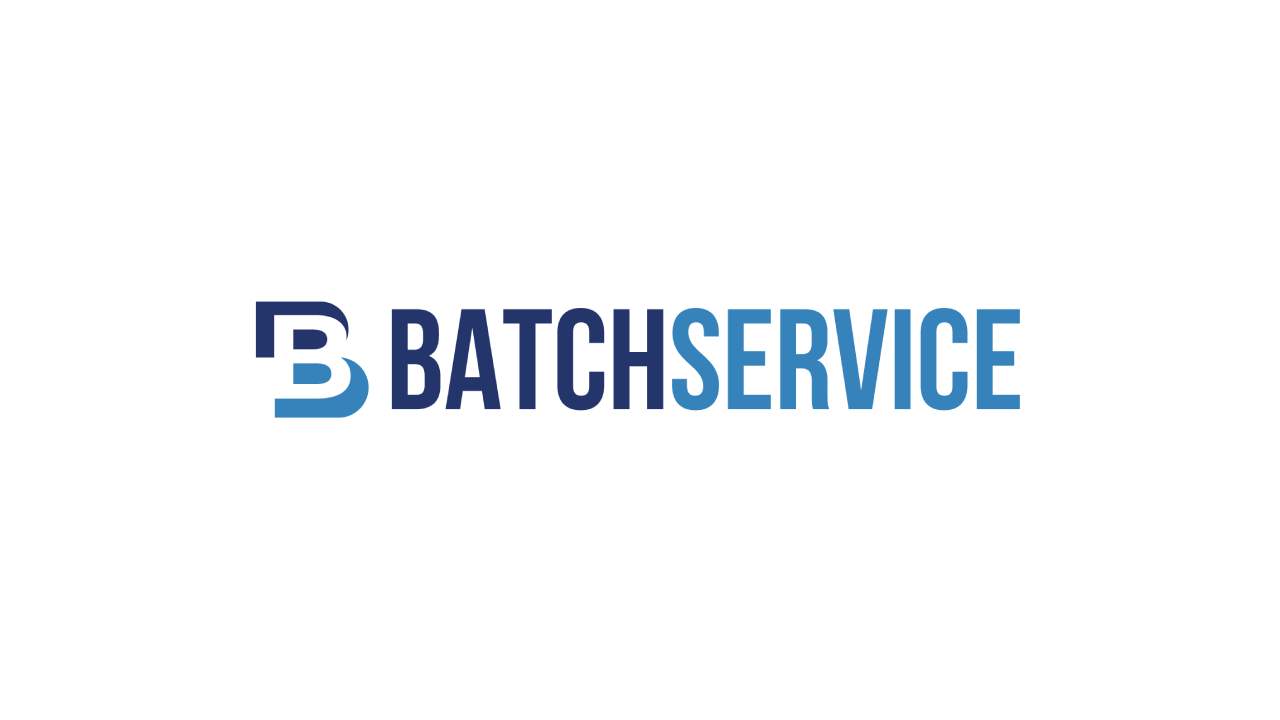Choosing the right web hosting provider is crucial for the success of your website. With so many options available, it can be overwhelming to make an informed decision. In this comprehensive guide, we will walk you through the process of selecting the perfect web hosting, ensuring that your website performs optimally and provides a seamless experience for your visitors. From understanding different types of web hosting to evaluating key factors, this guide will equip you with the knowledge needed to find the best fit for your unique needs.
Table of Contents
-
Introduction and Popular Web Hosting Solutions
-
Understanding Website Hosting
-
Different Types of Web Hosting
-
Shared Hosting
-
Virtual Private Server (VPS) Hosting
-
Dedicated Hosting
-
Cloud Hosting
-
Factors to Consider When Choosing Web Hosting
-
Performance and Reliability
-
Scalability and Flexibility
-
Security Measures
-
Customer Support
-
Types of Hosting Plans
-
Pricing and Value
-
User-Friendly Control Panel
-
Backup and Disaster Recovery
-
Performance and Speed Tests
-
Reputation and Experience
-
Understand Your Website's Requirements
-
Types of Websites
-
Traffic and Visitor Expectations
-
Storage and Bandwidth Requirements
-
Website Applications and Software
-
Email Hosting and Management
-
Future Growth and Expansion
-
Why Is It Crucial to Compare Web Hosting Providers?
-
Selecting the Right Web Hosting Provider
-
Conclusion
1. Introduction
In today's digital age, having an online presence is essential for businesses and individuals alike. A well-designed and functional website can help you reach a wider audience, promote your products or services, and establish credibility in your industry. However, the success of your website depends heavily on the web hosting provider you choose. Web hosting plays a crucial role in the performance, security, and reliability of your website. With the abundance of options available, it's important to make an informed decision based on your specific needs and requirements.
Popular Help Desk Software Solutions
Nexcess
At Nexcess, they don't just provide hosting; they optimize it for the industry's leading platforms, making great content and commerce platforms even better for you to build on. Why settle for ordinary hosting when you can have extraordinary? Nexcess is your motivated managed hosting provider, offering a range of features that empower your online presence:
Powerful Features That Set Nexcess Apart
-
Autoscaling: Extra PHP resources are automatically deployed during traffic surges, ensuring your website's performance even during peak times.
-
Cloud Acceleration: Experience intelligent, dimensional caching for unstoppable speed and performance.
-
Customizable Tech Stack: Support your website with their curated, lightweight application stack tailored to your needs.
-
PCI-Compliant Infrastructure: Rest easy knowing your store's payment and transaction data remains 100% secure.
-
Dev Sites and Staging: Safely test site changes without sharing personal data, available on every plan.
-
Open Source Foundation: For 23+ years, they have fostered growth and technology in the open-source community.
Liquid Web
At Liquid Web, they prioritize your website's performance and security. Their hosting solutions are designed to be fast, secure, and hassle-free, ensuring your website runs smoothly and stays protected.
They understand that every project is unique. That's why they offer tailored hosting solutions designed to help you reach your business goals faster. Whether you need high availability hosting, compliance solutions, or VMware private cloud hosting, they've got you covered.
Web.com
At Web.com, they understand that every website has unique needs. That's why they offer a range of hosting packages to cater to your specific requirements.
Web.com's hosting services are built to provide the best possible environment for your website to thrive. Here's what you can expect:
-
99.9% Uptime
-
Unmetered Bandwidth
-
SSL Security
-
Expert Website Hosting
-
Domain Registration
-
Website Builder
-
Email Solutions
-
A Complete Solution
-
WordPress Hosting
2. Understanding Website Hosting
Before diving into the intricacies of web hosting, it's important to have a basic understanding of how it works. When you visit a website, the files that make up the website are stored on a remote server. These files are then accessed by your web browser, which renders them into a visually appealing and functional website that you can interact with. Web hosting is the process of storing these files and making them accessible to users on the internet. Think of web hosting as renting space on a server to store your website's files.
3. Different Types of Web Hosting
There are several different types of web hosting available, each with its own advantages and disadvantages. Understanding these different types will help you determine which one is the best fit for your website.
3.1 Shared Hosting
Shared hosting is one of the most common and cost-effective options for hosting a website. With shared hosting, multiple websites are hosted on a single physical server, sharing its resources such as CPU, RAM, and disk space. This makes shared hosting an affordable option for individuals and small businesses with limited budgets. However, since resources are shared, the performance of your website can be affected by other websites on the same server. Shared hosting is suitable for small websites with low to moderate traffic.
3.2 Virtual Private Server (VPS) Hosting
VPS hosting offers a step up from shared hosting by providing a dedicated portion of a physical server. In a VPS hosting environment, multiple virtual servers are created within a single physical server, each operating independently with its own resources. This provides more control and resources compared to shared hosting, making it a good option for websites that require more scalability and flexibility. VPS hosting is suitable for websites with moderate to high traffic.
3.3 Dedicated Hosting
Dedicated hosting provides the highest level of performance and control by giving you exclusive access to an entire physical server. With dedicated hosting, you have full control over the server environment, allowing you to optimize configurations and customize settings according to your specific requirements. This makes it ideal for large websites or businesses that require extensive resources and performance capabilities. Dedicated hosting is suitable for websites with high traffic and resource-intensive applications.
3.4 Cloud Hosting
Cloud hosting is a relatively new and flexible hosting solution that utilizes a network of interconnected servers to deliver scalable and reliable hosting services. Unlike traditional hosting options, cloud hosting allows for on-demand resource allocation and the ability to handle varying traffic volumes seamlessly. Cloud hosting offers high uptime, scalability, and cost-effectiveness, making it suitable for websites with fluctuating traffic and resource needs.
3.5 Managed WordPress Hosting
Managed WordPress hosting is specifically tailored for websites built on the WordPress platform. It provides specialized features and optimizations to enhance the performance and security of WordPress websites. Managed WordPress hosting often includes automatic updates, daily backups, and advanced security measures. This type of hosting is ideal for WordPress users who want a hassle-free hosting experience and dedicated support for their WordPress websites.
3.6 Reseller Hosting
Reseller hosting is a type of hosting where individuals or businesses purchase hosting resources from a hosting provider and resell them to their own clients. This allows resellers to create their own hosting packages and set their own pricing. Reseller hosting is commonly used by web designers, developers, and agencies who want to offer hosting services as a part of their business. It provides an opportunity to generate additional income and maintain control over the hosting services they offer.
4. Factors to Consider When Choosing Web Hosting
When choosing a web hosting provider, there are several factors you should consider to ensure you make the right decision. These factors will help you evaluate the performance, reliability, security, and support offered by different hosting providers. Here are some key factors to consider:
4.1 Performance and Reliability
The performance and reliability of your website are crucial for providing a positive user experience. Look for hosting providers that offer fast server speeds and high uptime guarantees. Server speed is important for ensuring your website loads quickly, which is essential for retaining visitors and improving your search engine rankings. Uptime guarantees indicate the percentage of time that your website will be accessible to visitors. Choose a hosting provider that offers at least a 99.9% uptime guarantee.
4.2 Scalability and Flexibility
As your website grows and attracts more visitors, you'll need a hosting provider that can accommodate your increasing resource demands. Look for hosting providers that offer scalable hosting plans, allowing you to easily upgrade or downgrade your resources as needed. This flexibility will ensure that your website can handle spikes in traffic and accommodate future growth.
4.3 Security Measures
Website security is of utmost importance to protect your website and sensitive data from cyber threats. Look for hosting providers that offer robust security measures such as SSL certificates, firewalls, and DDoS protection. SSL certificates encrypt data transmitted between your website and visitors, ensuring secure communication. Firewalls and DDoS protection help prevent unauthorized access and protect against distributed denial-of-service attacks.
4.4 Customer Support
Prompt and reliable customer support is crucial when you encounter technical issues or have questions regarding your hosting account. Look for hosting providers that offer 24/7 customer support through multiple channels such as live chat, phone, and email. Fast response times and knowledgeable support staff will ensure that your issues are resolved quickly and efficiently.
4.5 Types of Hosting Plans
Hosting providers offer various types of hosting plans to cater to different needs and budgets. Consider the specific requirements of your website and choose a hosting plan that aligns with your needs. Common hosting plans include shared hosting, VPS hosting, dedicated hosting, and cloud hosting. Each plan offers different levels of performance, control, and resource allocation.
4.6 Pricing and Value
While pricing shouldn't be the sole determining factor, it's important to consider the cost of hosting plans in relation to the features and resources provided. Compare the pricing of different hosting providers and evaluate the value they offer. Look for providers that offer transparent pricing with no hidden fees. Consider the long-term costs, renewal prices, and any additional services or features included in the hosting plans.
4.7 User-Friendly Control Panel
A user-friendly control panel is essential for managing your hosting account and website. Look for hosting providers that offer intuitive and feature-rich control panels such as cPanel or Plesk. These control panels make it easy to manage your website files, databases, email accounts, and domain settings. A well-designed control panel will save you time and make it easier to perform common administrative tasks.
4.8 Backup and Disaster Recovery
Regular backups of your website files and databases are essential to protect against data loss. Look for hosting providers that offer automated backup solutions and easy restoration options. Regular backups will ensure that your website can be quickly restored in case of accidental data loss, hacking attempts, or server failures. Consider the frequency and retention period of backups offered by the hosting provider.
4.9 Performance and Speed Tests
Before committing to a hosting provider, it's a good idea to perform performance and speed tests. This will give you an idea of how fast your website will load and how it will perform under different traffic conditions. Look for hosting providers that offer tools or resources for testing website performance and speed. Consider factors such as server location, caching mechanisms, and content delivery networks (CDNs) that can improve website speed and performance.
4.10 Reputation and Experience
Research the reputation and experience of hosting providers before making a decision. Read reviews and testimonials from other website owners to get an idea of their experiences with different providers. Consider the provider's track record, uptime history, and customer satisfaction ratings. Choose a hosting provider with a solid reputation and a proven track record of delivering reliable and high-quality hosting services.
5. Understand Your Website's Requirements
To choose the best web hosting provider for your website, it's important to understand your website's specific requirements. Consider the following factors when evaluating your website's needs:
5.1 Types of Websites
Different types of websites have different requirements in terms of resources, performance, and scalability. Consider the nature of your website, whether it's a personal blog, an e-commerce store, a portfolio website, or a business website. Determine the specific features and functionalities your website will require to ensure that your hosting provider can support them.
5.2 Traffic and Visitor Expectations
Consider the expected traffic volume and visitor expectations for your website. If you anticipate high traffic or rapid growth, ensure that your hosting provider can handle the increased resource demands. Look for providers that offer scalable hosting plans or cloud-based hosting solutions that can accommodate traffic spikes without affecting website performance.
5.3 Storage and Bandwidth Requirements
Evaluate your website's storage and bandwidth requirements. Consider the size of your website files, media content, databases, and email accounts. Ensure that the hosting provider offers sufficient storage space and bandwidth to handle your current and future needs. Look for providers that offer generous storage and bandwidth allocations or the ability to easily upgrade your resources.
5.4 Website Applications and Software
If your website requires specific applications or software, ensure that the hosting provider supports them. Consider whether you require support for programming languages such as PHP or databases such as MySQL. Look for hosting providers that offer the necessary software and technologies to support your website's requirements.
5.5 Email Hosting and Management
If you require email hosting for your domain, consider the email features and capabilities offered by the hosting provider. Look for providers that offer reliable email servers, spam filtering, virus scanning, and secure email protocols. Consider the number of email accounts you'll need and any specific requirements for email management and integration with your website.
5.6 Future Growth and Expansion
Anticipate your website's future growth and expansion plans. Consider whether your hosting provider can accommodate your future needs, such as additional resources, scalability options, or the ability to upgrade to a higher hosting plan. Choosing a hosting provider that can support your long-term growth will save you the hassle of migrating to a new provider in the future.
6. Why Is It Crucial to Compare Web Hosting Providers?
Comparing different web hosting providers is crucial to ensure that you choose the best fit for your website. Here are some key reasons why comparing web hosting providers is important:
6.1 Performance and Reliability
Not all hosting providers offer the same level of performance and reliability. By comparing providers, you can evaluate their server speeds, uptime guarantees, and performance track records. This will help you choose a provider that can deliver fast and reliable hosting services for your website.
6.2 Pricing and Value
Comparing pricing and value is essential to ensure that you get the most bang for your buck. Different hosting providers offer different pricing structures, features, and resource allocations. By comparing providers, you can find the best balance between cost and value for your specific needs.
6.3 Customer Support
Customer support is an important aspect of web hosting. By comparing providers, you can assess the quality and responsiveness of their customer support. Look for providers that offer 24/7 support, multiple support channels, and knowledgeable support staff.
6.4 Reputation and Experience
Comparing providers allows you to evaluate their reputation and experience in the industry. Look for providers with a solid track record and positive customer reviews. This will give you confidence in their ability to deliver reliable and high-quality hosting services.
6.5 Additional Features and Services
Different hosting providers offer different additional features and services. By comparing providers, you can assess whether they offer features such as website builders, automatic backups, security tools, and specialized hosting solutions. Consider which additional features are important for your website and choose a provider that offers them.
7. Selecting the Right Web Hosting Provider
After considering all the factors and comparing different web hosting providers, it's time to make a decision. Here are some key steps to selecting the right web hosting provider:
7.1 Evaluate Your Options
Narrow down your options to a shortlist of hosting providers that meet your requirements. Consider the factors discussed earlier, such as performance, scalability, security, customer support, and pricing. Evaluate the pros and cons of each provider to determine which ones align best with your needs.
7.2 Read Reviews and Testimonials
Read reviews and testimonials from other website owners who have used the hosting providers on your shortlist. This will give you insights into their experiences with each provider and help you make an informed decision. Look for patterns or recurring themes in the reviews to get a sense of the provider's strengths and weaknesses.
7.3 Contact Customer Support
Reach out to the customer support teams of the hosting providers on your shortlist. This will give you an opportunity to assess their responsiveness, knowledge, and professionalism. Ask any questions or clarify any doubts you may have about their services. Pay attention to their willingness to help and their ability to address your concerns.
7.4 Consider Long-Term Plans
Think about your long-term plans for your website. Consider whether the hosting provider can support your future growth and expansion. Evaluate their upgrade options, scalability, and the ability to handle increased traffic and resource demands. Choose a provider that can grow with your website and accommodate your future needs.
7.5 Make an Informed Decision
Based on your evaluation, reviews, testimonials, and interactions with customer support, make an informed decision about which web hosting provider is the best fit for your website. Consider all the factors discussed earlier, and prioritize the ones that are most important to you. Trust your judgment and choose the provider that you feel confident will meet your needs and provide reliable hosting services.
8. Conclusion
Choosing the perfect web hosting provider is a critical step in establishing a successful online presence. By understanding the different types of web hosting, evaluating key factors, and comparing providers, you can make an informed decision that aligns with your website's specific needs. Take the time to research, consider your requirements, and prioritize factors such as performance, scalability, security, customer support, and pricing. By following the steps outlined in this guide, you'll be well-equipped to find the best fit web hosting provider that will ensure your website performs optimally, provides a seamless user experience, and supports your long-term growth.





